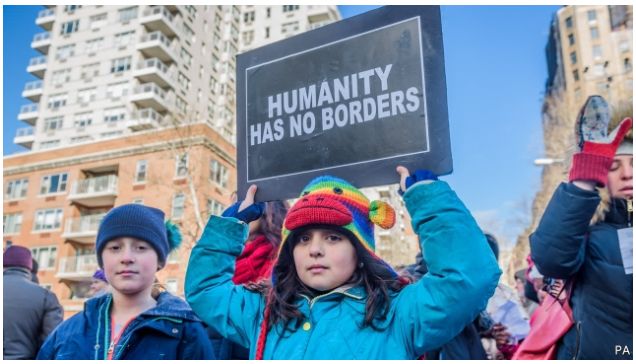- supervisord:使用RPC管理进程资源实战指南
京脉圈
本文还有配套的精品资源,点击获取简介:supervisord是一个用于管理Unix环境下进程的开源工具,支持进程的启动、停止、重启和异常恢复。本文深入探讨supervisord及其与RPC的结合使用,涉及JAVA、MAVEN和Spring在进程管理中的应用。通过配置文件和XML-RPC接口,实现远程管理进程的便捷性,尤其适用于分布式系统和微服务架构,提高开发者对后台服务的监控和控制效率。1.sup
- 【Linux | 网络】网络编程套接字
是阿建吖!
【Linux】【网络】linux网络
目录一、预备知识1.1理解IP地址1.2认识端口号1.3理解网络套接字1.4理解"端口号"和"进程ID"1.5认识TCP协议与UDP协议1.6网络字节序二、socket编程接口2.1socket常见API2.1.1socket函数2.1.2bind函数2.1.3listen函数2.1.4accept函数2.1.5connect函数2.2主机字节序和网络字节序的转换的函数2.2.1htonl函数2.
- 中国三维计量软件市场趋势报告、技术动态创新及市场预测
贝哲斯咨询
其他
三维计量软件市场的企业竞争态势该报告涉及的主要国际市场参与者有CarlZeissAG、FaroTechnologies,Inc.、H.S.&S.Inc.、HeliotisAG、ZebiconA/S、CreaformInc.、MitutoyoCorporation、HexagonAB、3dSystemCorp、NikonCorporation、GeMeasurement&ControlSolutio
- Solidity——returns和return区别、命名式返回、解构式赋值
穗余
Web3区块链
这一讲,我们将介绍Solidity函数输出,包括:返回多种变量,命名式返回,以及利用解构式赋值读取全部或部分返回值。返回值:return和returnsSolidity中与函数输出相关的有两个关键字:return和returns。它们的区别在于:returns:跟在函数名后面,用于声明返回的变量类型及变量名。return:用于函数主体中,返回指定的变量。//返回多个变量functionreturn
- Solidity——什么是低级调用(low-level calls)和操作码的内联汇编
这是Solidity高级开发中很重要的两个概念,通常用于:精细控制合约行为(比如合约间通信、控制gas、避免fallback限制)编写高性能或底层逻辑的合约(例如代理合约、MEV、Gas优化等)我们逐一讲清楚:✅一、什么是低级调用(Low-levelcalls)Solidity提供了几种**“低级”函数调用方式**,用于替代标准的函数调用。这些函数更原始、更灵活,但使用不当容易出bug(比如失败不
- Solidity——pure 不消耗gas的情况、call和sendTransaction区别
穗余
Web3区块链
/pure:纯纯牛马functionaddPure(uint256_number)externalpurereturns(uint256new_number){new_number=_number+1;}不会消耗gas对吧。传的不是状态变量你的理解基本对了,但我们来更严谨、深入地回答这个问题。✅你这段pure函数代码:functionaddPure(uint256_number)externalp
- Solidity——修改状态变量注意事项和简单优化建议
穗余
Web3区块链
你的问题非常关键,涉及到Solidity合约部署时的初始化gas成本和运行时的存储操作gas消耗。我们来详细解答:首先,你的代码是非法的:contractMyContract{uintpublicmyNumber;myNumber=1;//❌不允许这样写myNumber=2;//❌不允许这样写}❌错误原因:状态变量的赋值不能直接写在合约作用域中,必须在:声明时初始化构造函数中初始化某个函数中设置✅
- leetcode67.二进制求和
ゞ 正在缓冲99%…
算法leetcode位运算
publicclassSolution{publicStringaddBinary(Stringa,Stringb){StringBuilderresult=newStringBuilder();inti=a.length()-1;intj=b.length()-1;intcarry=0;while(i>=0||j>=0||carry!=0){intsum=carry;if(i>=0){sum+=
- 六大技术支柱推动元宇宙发展:从区块链到物联网
元宇宙作为数字世界与现实世界深度融合的产物,其发展依赖于六大技术支柱的协同创新,这一技术集合被形象地称为“BIGANT”(大蚂蚁)。以下是对六大技术支柱的详细解析,重点阐述区块链与物联网的核心作用:一、区块链技术(Blockchain):构建元宇宙的信任基石去中心化经济体系区块链通过NFT(非同质化通证)、DAO(去中心化自治组织)、智能合约等技术,为元宇宙提供了去中心化的价值流转机制。例如:NF
- json学习路线
学习nlohmann/json这个项目有两种角度:⸻✅你想学哪种?我可以分别给你指引:学习角度你想学的是对应建议用户角度(日常使用)如何使用它来解析/生成JSON阅读官方文档+写小项目练练⚙️开发者角度(源码剖析)它是如何实现JSON的(模板、结构等)阅读源码+分析AST+阅读测试用例⸻一、用户角度(快速掌握使用json库)✅第一步:先看官方文档示例官网仓库就有清晰用法:https://githu
- C#.NET NLog 详解
c#.net
简介NLog是.NET平台上最流行的开源日志框架之一,特色是灵活的配置、丰富的输出目标(Target),以及高性能的异步写入能力。适用场景:从控制台、文件、数据库、网络到ElasticSearch、Seq、AzureTableStorage等各种日志收集后端。支持文件、数据库(SQL/NoSQL)、控制台、邮件、Elasticsearch等50+内置目标,并可通过插件扩展原生兼容JSON格式,可输
- SQL查询实战:高效数据检索全攻略
六七_Shmily
数据库sql数据库
SQLDQL详解:SELECT查询与核心子句DQL(DataQueryLanguage)是SQL中最常用的部分,核心是SELECT语句,用于从数据库检索数据。以下是完整结构和各子句的详细解析:SELECT[DISTINCT]column_list--选择字段FROMtable_sources--数据来源[JOIN_TYPEJOINtableONjoin_condition]--多表连接[WHERE
- Solidity——什么是状态变量
穗余
Web3区块链
在以太坊(Ethereum)的智能合约中:✅状态变量(StateVariables)是指:存储在区块链上的数据。它们的值保存在以太坊的永久存储(也叫storage)中,而不是临时的内存(memory)或堆栈(stack)中。语法上怎么写状态变量?在Solidity中,只要你在**合约作用域内(合约的最外层)**声明一个变量,它默认就是状态变量。✅例如:pragmasolidity^0.8.0;co
- Claude 最新功能解读:2024 年 AI 技术的前沿发展
AI原生应用开发
人工智能ai
Claude最新功能解读:2024年AI技术的前沿发展关键词:Claude3.5Sonnet、多模态增强、长上下文理解、工具调用进化、个性化AI、伦理安全机制、2024AI前沿摘要:2024年,Anthropic推出的Claude3.5Sonnet成为AI领域的“现象级更新”——它不仅能同时处理文字、图片、音频等多种信息(多模态),还能记住长达100万字的上下文(相当于一本《哈利波特》),甚至能像
- 修改/proc/pid/limits的max open files值
如2965进程的Maxopenfiles[root@utilshkwxadmin]#cat/proc/2965/limitsLimitSoftLimitHardLimitUnitsMaxcputimeunlimitedunlimitedsecondsMaxfilesizeunlimitedunlimitedbytesMaxdatasizeunlimitedunlimitedbytesMaxstac
- HYTop.mdb解压工具:MDB文件自动化处理
本文还有配套的精品资源,点击获取简介:HYTop.mdb解压工具是一款处理MicrosoftAccess默认格式MDB数据库文件的实用工具。它能够帮助用户在空间压缩后进行解压操作,并支持网站打包流程的自动化启动。工具的主要功能是恢复压缩数据至原始状态,确保文件的完整性和安全性,在网络传输和服务器存储过程中发挥作用。此外,它还能自动化进行文件解压、配置调整和数据库连接验证等部署步骤,简化网站部署流程
- ipmitool java版本_IPMITool使用
梁豆子
ipmitooljava版本
内核模块加载ipmi_devintf和ipmi_si后,会生成/dev/ipmi0。ps:获取传感器信息请安装lm-sensors,然后运行sensors-detect。常见ipmitool$ipmitoolbmcresetcold#ResetBMC/DRACtodefault$ipmitool–Iopenbmcinfo#checkBMCinfo$ipmitoolsel#checkSELlog$i
- TeamT5-ThreatSonar 解决方案:构建智能动态的 APT 与勒索软件防御体系
江苏思维驱动智能研究院有限公司
自动化网络大数据
一、核心功能深度解析:从威胁狩猎到自动化响应的闭环能力(一)威胁狩猎:主动挖掘潜伏性攻击的“数字侦探”多层级威胁识别引擎:静态特征匹配:内置超1000种APT后门签名(如Regin、Duqu等高级工具包特征),实时扫描端点文件、注册表与进程,比对全球威胁情报库(每日更新超50万条IOC);动态行为分析:通过内核级监控技术,捕捉异常操作(如非预期的进程注入、加密API高频调用),例如某银行端点出现“
- ipmitool 使用简介(ipmitool sel list & ipmitool sensor list)
itmanll
运维服务器
常用IPMI命令扩展使用ipmitool查看传感器信息ipmitool是一个用于管理IPMI(IntelligentPlatformManagementInterface)设备的命令行工具,可用于监控服务器硬件状态,包括传感器数据。运行以下命令可以列出所有传感器信息:ipmitoolsensorlist常用传感器监控命令查看特定传感器的详细信息:ipmitoolsensorget"SensorNa
- android webview confilm,Android-WebView(四) 实现一个安全的webView
王诗沐
androidwebviewconfilm
正如文章Androidwebview(三)addJavascriptInterface的安全问题中所展示的那样,Androidapi17(Android4.2)版本之前,通过WebView.addJavascriptInterface()方法添加的JavaBridge存在安全性风险,那么该怎么避免呢?js向java通信的渠道--prompt我们知道js中常用的方法:alert,console.lo
- NXP imx8mp android11.0 1920x1080 lvds调试
luuu99
arm开发androidlinux
lvds基本调试流程:nxp屏显参数是在c文件进行配置+++b/vendor/nxp-opensource/kernel_imx/arch/arm64/boot/dts/freescale/imx8mp-evk.dts@@-84,6+84,39@@compatible="android,trusty-log-v1";};};+lvds0_panel_pwr:regulator-lvds-pwr{+
- 牛客_计算器(二)
d3y1
java开发语言
计算器(二)https://www.nowcoder.com/practice/a9c170bfaf7349e3acb475d786ab1c7dimportjava.util.*;/***NC241计算器(二)*@authord3y1*/publicclassSolution{/***代码中的类名、方法名、参数名已经指定,请勿修改,直接返回方法规定的值即可***@paramsstring字符串*@
- HTTP与HTTPS的区别
点亮~黑夜
httphttps网络协议
文章目录1.从HTTP协议中衍生出的HTTPS协议2.基本概念3.具体区别4.HTTPS具体工作HTTP:超文本传输协议(HyperTextTransferProtocol)HTTPS:安全套接字层超文本传输协议(HyperTextTransferProtocoloverSecureSocketLayer)1.从HTTP协议中衍生出的HTTPS协议超文本传输协议HTTP协议被用于在Web浏览器和*
- 10.6 ChatGLM3私有数据微调实战:24小时打造高精度模型,显存直降60%
少林码僧
掌握先机!从0起步实战AI大模型微调打造核心竞争力chatgpt机器学习深度学习人工智能语言模型
ChatGLM3私有数据微调实战:24小时打造高精度模型,显存直降60%1.实战构造私有的微调数据集在微调大模型时,数据质量直接决定模型效果。本节将手把手教你如何构建高质量的私有微调数据集。1.1使用ChatGPT自动设计生成训练数据的Prompt核心思路:通过ChatGPT生成符合任务需求的样本数据,降低人工标注成本。步骤示例(以生成客服对话数据为例):fromlangchain.prompts
- vscode报错:找不到任务“g++.exe build active file”。(Linux)
错误原因:task.json文件中的“label”和launch.json中的"preLaunchTask"不匹配,要保持这两个参数一致(大部分原因都是因为中英文不匹配)!task.jsonlaunch.json以上是修改后的,因为task文件是自动生成的,label处错误写法是:g++.exe的生成活动文件(中文),而launch文件找不到中文,就报错找不到了。把task文件中的改成英文就可以了
- 【云原生技术】EArorNee uoine .basanend via che sut o inoeturos y>e,xxx.aebord.yonding.xxxx:8443/v2/ failed
阿寻寻
云原生
EArorNeeuoine.basanendviachesutoinoeturosy>e,xxxx.harbor.yonding,xxxx:8443/v2/failedwithstatus:401unauthorized我已经配置了daemon.json文件,也重启了docker,在登陆的时候报错这个是为什么?x509的报错早已解决;现在出现的是HTTP401Unauthorized,含义完全不同
- 2.线性神经网络--Softmax回归
温柔济沧海
深度学习神经网络回归人工智能
2.1从零实现Softmax回归#数据集导入importtorchimporttorchvisionfromtorchvisionimporttransformsimportmatplotlib.pyplotaspltfromtqdmimporttqdmfromtorch.utils.dataimportDataLoader#####################################
- halcon算子翻译——gray_histo和gray_histo_abs
机器人自动化控制
HALCON
算子:gray_histo(Regions,Image:::AbsoluteHisto,RelativeHisto)功能:计算灰度值分布。算子gray_histo为区域内的图像计算灰度值的绝对和相对的直方图。两个直方图都是256个值的元组,它们从0开始,包含图像的各个灰度值的频率。输入参数:Regions:输入计算的区域;Image:输入图像(byte/cyclic/direction/intl/
- 蓝桥杯2023国赛-01游戏
weixin_66009678
蓝桥杯游戏深度优先
本题的dfs还是比较复杂的,需要兼顾的条件比较多。这一题是我看了其他人的题才写出来的,菜菜捏,哈哈哈哈哈!!!然后这一题如何确保行之前不相同,是通过二进制来的,具体的在代码中给出了详解。直接上代码://https://www.lanqiao.cn/problems/17100/learning/?page=1&first_category_id=1&sort=students_count&tags
- Javascript基础内容回顾—变量提升、事件循环和闭包等内容
GISer_Jinger
javascript前端
以下是前端面试中JavaScript基础易错问题的详解,结合常见考点和易混淆概念进行解析:⚠️一、变量作用域与提升varvslet/const◦变量提升:var声明的变量会提升到作用域顶部(值为undefined),而let/const存在暂时性死区(声明前访问报错)。◦循环陷阱:for(vari=0;iconsole.log(i));//输出3,3,3(共享同一作用域)}for(leti=0;i
- 项目中 枚举与注解的结合使用
飞翔的马甲
javaenumannotation
前言:版本兼容,一直是迭代开发头疼的事,最近新版本加上了支持新题型,如果新创建一份问卷包含了新题型,那旧版本客户端就不支持,如果新创建的问卷不包含新题型,那么新旧客户端都支持。这里面我们通过给问卷类型枚举增加自定义注解的方式完成。顺便巩固下枚举与注解。
一、枚举
1.在创建枚举类的时候,该类已继承java.lang.Enum类,所以自定义枚举类无法继承别的类,但可以实现接口。
- 【Scala十七】Scala核心十一:下划线_的用法
bit1129
scala
下划线_在Scala中广泛应用,_的基本含义是作为占位符使用。_在使用时是出问题非常多的地方,本文将不断完善_的使用场景以及所表达的含义
1. 在高阶函数中使用
scala> val list = List(-3,8,7,9)
list: List[Int] = List(-3, 8, 7, 9)
scala> list.filter(_ > 7)
r
- web缓存基础:术语、http报头和缓存策略
dalan_123
Web
对于很多人来说,去访问某一个站点,若是该站点能够提供智能化的内容缓存来提高用户体验,那么最终该站点的访问者将络绎不绝。缓存或者对之前的请求临时存储,是http协议实现中最核心的内容分发策略之一。分发路径中的组件均可以缓存内容来加速后续的请求,这是受控于对该内容所声明的缓存策略。接下来将讨web内容缓存策略的基本概念,具体包括如如何选择缓存策略以保证互联网范围内的缓存能够正确处理的您的内容,并谈论下
- crontab 问题
周凡杨
linuxcrontabunix
一: 0481-079 Reached a symbol that is not expected.
背景:
*/5 * * * * /usr/IBMIHS/rsync.sh
- 让tomcat支持2级域名共享session
g21121
session
tomcat默认情况下是不支持2级域名共享session的,所有有些情况下登陆后从主域名跳转到子域名会发生链接session不相同的情况,但是只需修改几处配置就可以了。
打开tomcat下conf下context.xml文件
找到Context标签,修改为如下内容
如果你的域名是www.test.com
<Context sessionCookiePath="/path&q
- web报表工具FineReport常用函数的用法总结(数学和三角函数)
老A不折腾
Webfinereport总结
ABS
ABS(number):返回指定数字的绝对值。绝对值是指没有正负符号的数值。
Number:需要求出绝对值的任意实数。
示例:
ABS(-1.5)等于1.5。
ABS(0)等于0。
ABS(2.5)等于2.5。
ACOS
ACOS(number):返回指定数值的反余弦值。反余弦值为一个角度,返回角度以弧度形式表示。
Number:需要返回角
- linux 启动java进程 sh文件
墙头上一根草
linuxshelljar
#!/bin/bash
#初始化服务器的进程PId变量
user_pid=0;
robot_pid=0;
loadlort_pid=0;
gateway_pid=0;
#########
#检查相关服务器是否启动成功
#说明:
#使用JDK自带的JPS命令及grep命令组合,准确查找pid
#jps 加 l 参数,表示显示java的完整包路径
#使用awk,分割出pid
- 我的spring学习笔记5-如何使用ApplicationContext替换BeanFactory
aijuans
Spring 3 系列
如何使用ApplicationContext替换BeanFactory?
package onlyfun.caterpillar.device;
import org.springframework.beans.factory.BeanFactory;
import org.springframework.beans.factory.xml.XmlBeanFactory;
import
- Linux 内存使用方法详细解析
annan211
linux内存Linux内存解析
来源 http://blog.jobbole.com/45748/
我是一名程序员,那么我在这里以一个程序员的角度来讲解Linux内存的使用。
一提到内存管理,我们头脑中闪出的两个概念,就是虚拟内存,与物理内存。这两个概念主要来自于linux内核的支持。
Linux在内存管理上份为两级,一级是线性区,类似于00c73000-00c88000,对应于虚拟内存,它实际上不占用
- 数据库的单表查询常用命令及使用方法(-)
百合不是茶
oracle函数单表查询
创建数据库;
--建表
create table bloguser(username varchar2(20),userage number(10),usersex char(2));
创建bloguser表,里面有三个字段
&nbs
- 多线程基础知识
bijian1013
java多线程threadjava多线程
一.进程和线程
进程就是一个在内存中独立运行的程序,有自己的地址空间。如正在运行的写字板程序就是一个进程。
“多任务”:指操作系统能同时运行多个进程(程序)。如WINDOWS系统可以同时运行写字板程序、画图程序、WORD、Eclipse等。
线程:是进程内部单一的一个顺序控制流。
线程和进程
a. 每个进程都有独立的
- fastjson简单使用实例
bijian1013
fastjson
一.简介
阿里巴巴fastjson是一个Java语言编写的高性能功能完善的JSON库。它采用一种“假定有序快速匹配”的算法,把JSON Parse的性能提升到极致,是目前Java语言中最快的JSON库;包括“序列化”和“反序列化”两部分,它具备如下特征:
- 【RPC框架Burlap】Spring集成Burlap
bit1129
spring
Burlap和Hessian同属于codehaus的RPC调用框架,但是Burlap已经几年不更新,所以Spring在4.0里已经将Burlap的支持置为Deprecated,所以在选择RPC框架时,不应该考虑Burlap了。
这篇文章还是记录下Burlap的用法吧,主要是复制粘贴了Hessian与Spring集成一文,【RPC框架Hessian四】Hessian与Spring集成
- 【Mahout一】基于Mahout 命令参数含义
bit1129
Mahout
1. mahout seqdirectory
$ mahout seqdirectory
--input (-i) input Path to job input directory(原始文本文件).
--output (-o) output The directory pathna
- linux使用flock文件锁解决脚本重复执行问题
ronin47
linux lock 重复执行
linux的crontab命令,可以定时执行操作,最小周期是每分钟执行一次。关于crontab实现每秒执行可参考我之前的文章《linux crontab 实现每秒执行》现在有个问题,如果设定了任务每分钟执行一次,但有可能一分钟内任务并没有执行完成,这时系统会再执行任务。导致两个相同的任务在执行。
例如:
<?
//
test
.php
- java-74-数组中有一个数字出现的次数超过了数组长度的一半,找出这个数字
bylijinnan
java
public class OcuppyMoreThanHalf {
/**
* Q74 数组中有一个数字出现的次数超过了数组长度的一半,找出这个数字
* two solutions:
* 1.O(n)
* see <beauty of coding>--每次删除两个不同的数字,不改变数组的特性
* 2.O(nlogn)
* 排序。中间
- linux 系统相关命令
candiio
linux
系统参数
cat /proc/cpuinfo cpu相关参数
cat /proc/meminfo 内存相关参数
cat /proc/loadavg 负载情况
性能参数
1)top
M:按内存使用排序
P:按CPU占用排序
1:显示各CPU的使用情况
k:kill进程
o:更多排序规则
回车:刷新数据
2)ulimit
ulimit -a:显示本用户的系统限制参
- [经营与资产]保持独立性和稳定性对于软件开发的重要意义
comsci
软件开发
一个软件的架构从诞生到成熟,中间要经过很多次的修正和改造
如果在这个过程中,外界的其它行业的资本不断的介入这种软件架构的升级过程中
那么软件开发者原有的设计思想和开发路线
- 在CentOS5.5上编译OpenJDK6
Cwind
linuxOpenJDK
几番周折终于在自己的CentOS5.5上编译成功了OpenJDK6,将编译过程和遇到的问题作一简要记录,备查。
0. OpenJDK介绍
OpenJDK是Sun(现Oracle)公司发布的基于GPL许可的Java平台的实现。其优点:
1、它的核心代码与同时期Sun(-> Oracle)的产品版基本上是一样的,血统纯正,不用担心性能问题,也基本上没什么兼容性问题;(代码上最主要的差异是
- java乱码问题
dashuaifu
java乱码问题js中文乱码
swfupload上传文件参数值为中文传递到后台接收中文乱码 在js中用setPostParams({"tag" : encodeURI( document.getElementByIdx_x("filetag").value,"utf-8")});
然后在servlet中String t
- cygwin很多命令显示command not found的解决办法
dcj3sjt126com
cygwin
cygwin很多命令显示command not found的解决办法
修改cygwin.BAT文件如下
@echo off
D:
set CYGWIN=tty notitle glob
set PATH=%PATH%;d:\cygwin\bin;d:\cygwin\sbin;d:\cygwin\usr\bin;d:\cygwin\usr\sbin;d:\cygwin\us
- [介绍]从 Yii 1.1 升级
dcj3sjt126com
PHPyii2
2.0 版框架是完全重写的,在 1.1 和 2.0 两个版本之间存在相当多差异。因此从 1.1 版升级并不像小版本间的跨越那么简单,通过本指南你将会了解两个版本间主要的不同之处。
如果你之前没有用过 Yii 1.1,可以跳过本章,直接从"入门篇"开始读起。
请注意,Yii 2.0 引入了很多本章并没有涉及到的新功能。强烈建议你通读整部权威指南来了解所有新特性。这样有可能会发
- Linux SSH免登录配置总结
eksliang
ssh-keygenLinux SSH免登录认证Linux SSH互信
转载请出自出处:http://eksliang.iteye.com/blog/2187265 一、原理
我们使用ssh-keygen在ServerA上生成私钥跟公钥,将生成的公钥拷贝到远程机器ServerB上后,就可以使用ssh命令无需密码登录到另外一台机器ServerB上。
生成公钥与私钥有两种加密方式,第一种是
- 手势滑动销毁Activity
gundumw100
android
老是效仿ios,做android的真悲催!
有需求:需要手势滑动销毁一个Activity
怎么办尼?自己写?
不用~,网上先问一下百度。
结果:
http://blog.csdn.net/xiaanming/article/details/20934541
首先将你需要的Activity继承SwipeBackActivity,它会在你的布局根目录新增一层SwipeBackLay
- JavaScript变换表格边框颜色
ini
JavaScripthtmlWebhtml5css
效果查看:http://hovertree.com/texiao/js/2.htm代码如下,保存到HTML文件也可以查看效果:
<html>
<head>
<meta charset="utf-8">
<title>表格边框变换颜色代码-何问起</title>
</head>
<body&
- Kafka Rest : Confluent
kane_xie
kafkaRESTconfluent
最近拿到一个kafka rest的需求,但kafka暂时还没有提供rest api(应该是有在开发中,毕竟rest这么火),上网搜了一下,找到一个Confluent Platform,本文简单介绍一下安装。
这里插一句,给大家推荐一个九尾搜索,原名叫谷粉SOSO,不想fanqiang谷歌的可以用这个。以前在外企用谷歌用习惯了,出来之后用度娘搜技术问题,那匹配度简直感人。
环境声明:Ubu
- Calender不是单例
men4661273
单例Calender
在我们使用Calender的时候,使用过Calendar.getInstance()来获取一个日期类的对象,这种方式跟单例的获取方式一样,那么它到底是不是单例呢,如果是单例的话,一个对象修改内容之后,另外一个线程中的数据不久乱套了吗?从试验以及源码中可以得出,Calendar不是单例。
测试:
Calendar c1 =
- 线程内存和主内存之间联系
qifeifei
java thread
1, java多线程共享主内存中变量的时候,一共会经过几个阶段,
lock:将主内存中的变量锁定,为一个线程所独占。
unclock:将lock加的锁定解除,此时其它的线程可以有机会访问此变量。
read:将主内存中的变量值读到工作内存当中。
load:将read读取的值保存到工作内存中的变量副本中。
- schedule和scheduleAtFixedRate
tangqi609567707
javatimerschedule
原文地址:http://blog.csdn.net/weidan1121/article/details/527307
import java.util.Timer;import java.util.TimerTask;import java.util.Date;
/** * @author vincent */public class TimerTest {
- erlang 部署
wudixiaotie
erlang
1.如果在启动节点的时候报这个错 :
{"init terminating in do_boot",{'cannot load',elf_format,get_files}}
则需要在reltool.config中加入
{app, hipe, [{incl_cond, exclude}]},
2.当generate时,遇到:
ERROR
